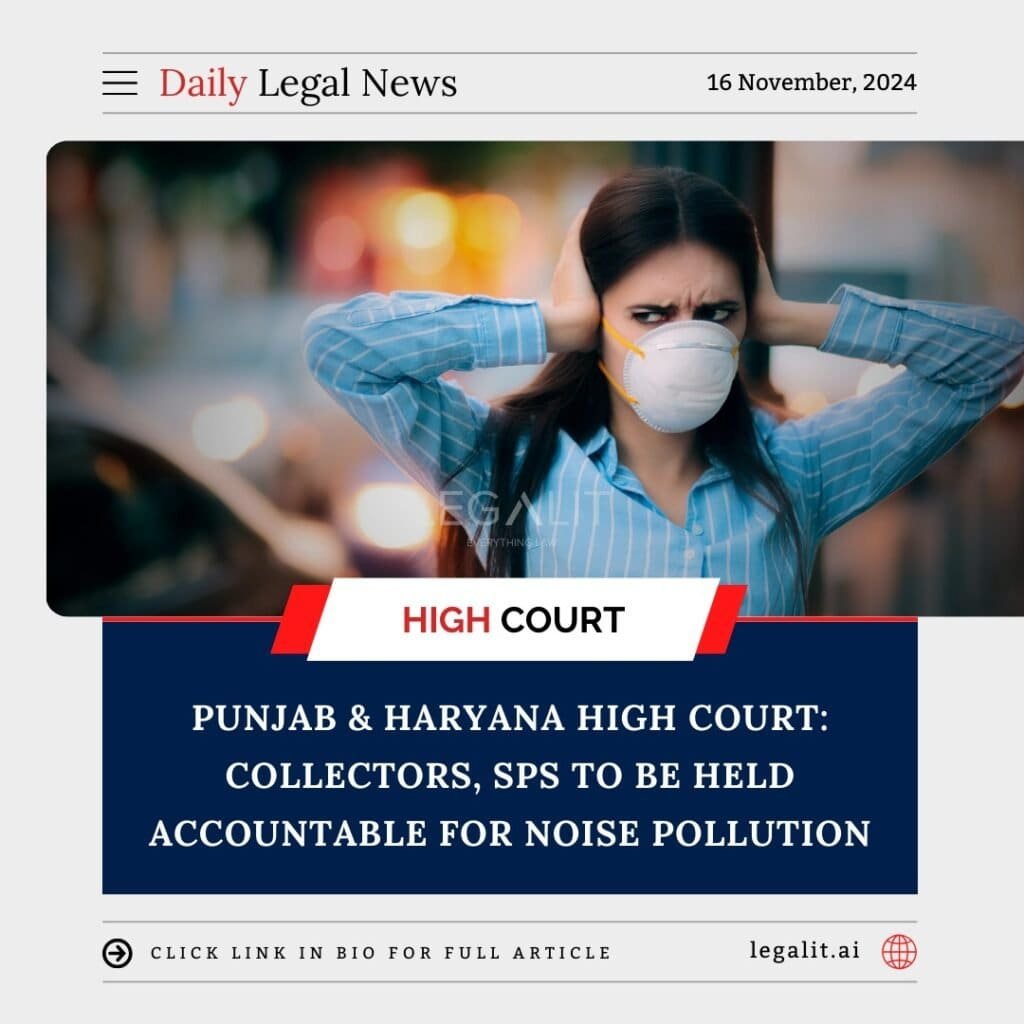
In a landmark ruling, the Punjab and Haryana High Court has directed that District Collectors and Superintendents of Police (SPs) will bear accountability for any instances of noise pollution in their respective jurisdictions.
Background:
The case originated from complaints about unchecked noise pollution caused by loudspeakers, construction activities, and vehicular honking, adversely affecting public health and environmental quality. Despite existing regulations under the Noise Pollution (Regulation and Control) Rules, 2000, enforcement remained lax, prompting judicial intervention.
Petitioners highlighted how prolonged exposure to excessive noise levels impacts mental and physical health, demanding stricter enforcement of noise pollution norms.
Court’s Observations:
The High Court emphasized that noise pollution is a serious environmental and public health issue, often overlooked by authorities. It held that:
- Accountability Is Key: District Collectors and SPs are directly responsible for implementing laws to curb noise pollution.
- Fundamental Rights: Excessive noise infringes on the fundamental right to life and health under Article 21 of the Constitution.
- Compliance with Statutes: Authorities are duty-bound to enforce provisions under the Environment (Protection) Act, 1986, and the Noise Pollution Rules, 2000.
Directions Issued by the Court:
- Mandatory Action Plans: District Collectors and SPs must create and implement noise pollution mitigation plans.
- Public Reporting Mechanism: Citizens should have an accessible system to report noise violations.
- Regular Monitoring: Authorities must ensure regular noise level checks in sensitive zones, including hospitals, schools, and residential areas.
- Enforcement of Timing Rules: Strict adherence to the restriction on the use of loudspeakers between 10 PM and 6 AM.
- Accountability Measures: Any dereliction of duty by Collectors or SPs in addressing noise complaints will invite penal consequences.
Existing Legal Framework:
- Noise Pollution (Regulation and Control) Rules, 2000: Regulates permissible noise levels in different zones and times.
- Environment Protection Act, 1986: Empowers authorities to prevent and control environmental pollution.
Conclusion:
The Punjab and Haryana High Court’s ruling reinforces accountability among administrative officers to address noise pollution effectively. This judgment is expected to improve enforcement, ensuring quieter and healthier environments for the public.